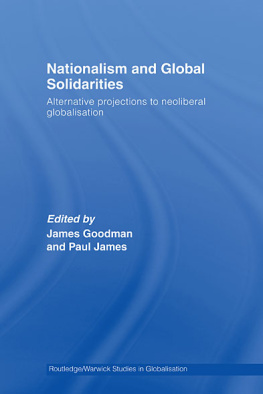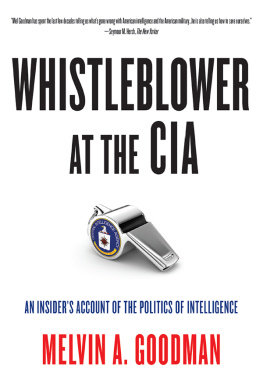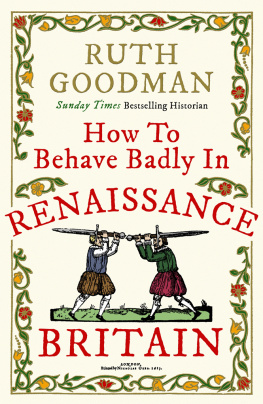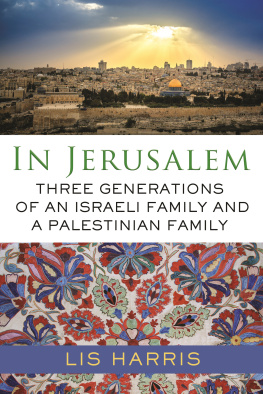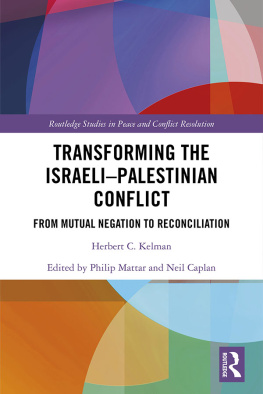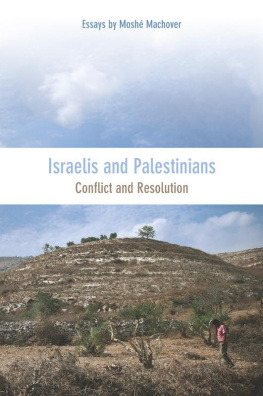CATCH-67
CATCH-67
THE LEFT, THE RIGHT, AND THE LEGACY OF THE SIX-DAY WAR
MICAH GOODMAN
TRANSLATED BY EYLON LEVY

Published with assistance from the Louis Stern Memorial Fund.
English translation copyright 2018 Micah Goodman.
Originally published as Milkud 67: ha-raaionot me-achorei ha-machloket she-koraat et Yisrael. Copyright 2017 Kinneret, Zmora-Bitan, DvirPublishing House Ltd. Copyright 2017 Beit Midrash Yisraeli.
All rights reserved.
This book may not be reproduced, in whole or in part, including illustrations, in any form (beyond that copying permitted by Sections 107 and 108 of the U.S. Copyright Law and except by reviewers for the public press), without written permission from the publishers.
Yale University Press books may be purchased in quantity for educational, business, or promotional use. For information, please e-mail (U.K. office).
Set in Meridien and Futura types by Integrated Publishing Solutions, Grand Rapids, Michigan.
Printed in the United States of America.
Library of Congress Control Number: 2018938413
ISBN 978-0-300-23674-3 (hardcover : alk. paper)
A catalogue record for this book is available from the British Library.
This paper meets the requirements of ANSI/NISO Z39.481992 (Permanence of Paper).
10 9 8 7 6 5 4 3 2 1
This book is dedicated to my dear friend, the late Sari Rubinstein.
CONTENTS
PREFACE TO THE ENGLISH EDITION
The Arab-Israeli conflict plays such a dominant role in the Israeli consciousness that it has all but taken over. While Israelis do care about questions of taxation, socioeconomic inequality, and the relationship between religion and state, these issues rarely determine how they vote. Israelis vote for the parties that represent their positions on the conflict. The monopoly of the conflict within political discourse in Israel remains one of the unacknowledged consequences of the Six-Day War.
How can the conflict be solved? Where should Israels eastern border run? What will be the fate of Jerusalem? And what of the settlements? Proponents on both Israels left and right have been arguing about these questions, and many others, for the past fifty years; various attempts have been made to end the conflict, each reaching a dead end. The conflict remains active, and the debate over what to do about it continues to hurt Israeli society from within.
Catch-67 is not about the Arab-Israeli conflict as such, but rather about the debate inside Israel about it. My journey into Israels national political debate will be a journey into the heart of Israeli society. This debate is stormy, even fierybut no one can hope to understand Israel without understanding the main argument that is being had within Israeli society.
The problem with the current state of political debate is not confined to Israel or the Arab-Israeli conflict. Across much of Europe and the United States, political debate has stopped functioning. What is meant by a functional political debate? A disagreement between people each of whom believes the other is wrong: I think you are wrong, and you think I am wrong. Thats how a good political debate ought to work. But what if I think you are not only wrong but evil? Reasonable disagreement collapses. Social media tend to amplify this dynamic. People are increasingly concerned with labeling others, instead of thinking about their arguments. When they are exposed to new political ideas, they seldom think about whether the ideas are right or wronginstead they ask, for example, whether they are liberal or conservative. Such people categorize ideas as a means of determining how to think about them. The effort to understand political arguments has been replaced by the desire to assign them to narrow categories.
Such are the voices heard on social media in Israel. Oftentimes, right-wingers think not only that left-wingers are wrong but that their openness to a territorial withdrawal makes them a threat to Israel, and perhaps even traitors. Oftentimes, left-wingers think not only that right-wingers are wrong but that their opposition to a two-state solution makes them a danger to Israeli society, and perhaps even fascists. The poisonous debate in Israel exemplifies the poisoning of political conversation around the world. When each side thinks that the others beliefs are not only wrong but illegitimate, the capacity to listen vanishes, and reasonable disagreement collapses.
Consider the difference between Israelis conversations about politics and their conversations about technology. Differences of opinion about technological matters are aired with an openness that has created an elastic, energetic, and effective dialogue. As a result, Israelis have generated a tremendous amount of technological innovation in the past two decades, and Israel is known worldwide as an incubator for new ideas and out-of-the-box thinking. Readers of this book might be surprised to learn that such a small country has produced more startup companies per capita than any major European nation.
In recent years, millions of people from around the world have visited Israel to learn about creativity and entrepreneurship from the Startup Nation. Visitors used to come to Israel primarily for its holy sites, such as the Western Wall and Church of the Holy Sepulcher, but today many arrive to tour its companies, such as Waze and MobilEye. This is a new brand of tourism, and it tells a new story about the State of Israel. If people used to visit Israel for a look at the past, now they visit Israel for a glimpse of the future.
But among those international visitors eager to learn about technological innovation none come to learn about political innovation. With regard to the most pressing issue for the Israeli public, the conflict with the Palestinians, Israels creative edge disappears. When it comes to solving the conflict, Israelis find themselves recycling the same ideas over and over again.
Much has been written about the secret of Israelis creativity. That secret lies in a certain rare quality of conversation in Israel. Enter an Israeli company, and you will be confronted with open discussion, group brainstorming, and a fruitful exchange of ideas. New ideas are met with enthusiasm; new thoughts are welcomed with encouragement. This is how Israelis create a climate conducive to the flourishing of new ideas.
But in contrast to the technological conversation, the political conversation in Israel leads not to the exchange of ideas but to the exchange of blows. Israelis do not listen to each otherthey blame each other. Such intolerance cannot create an environment for the generation of innovative thinking; it can only block innovative thinking. Israelis, who argue so creatively about technology, argue unproductively about politics. When conversation dries up, creativity dries up along with it.
I wrote this book originally in Hebrew for an Israeli readership. My purpose was to reflect back to Israelis their own arguments in a bid to heal their own national conversation. I wanted to show Israelis that for Israel to be politically and not just technologically groundbreaking, they needed not to try to win the political argument but first and foremost to try to repair the political argument.
Has this book achieved its goal in Israel? For now, it would appear not. Catch-67 was one of the most widely read books in Israel in 2017. It was publicly discussed by the heads of all the major parties, as well as Israels leading opinion makers. Nevertheless, the book has failed to change or even calm the political debate in Israel. Instead of healing discord, the book itself sparked discord. Many right-wing readers argued that I took a left-wing stance, while many left-wing readers argued that I favored a right-wing position. A book whose author begged its readers to rise above attempts to
Next page




